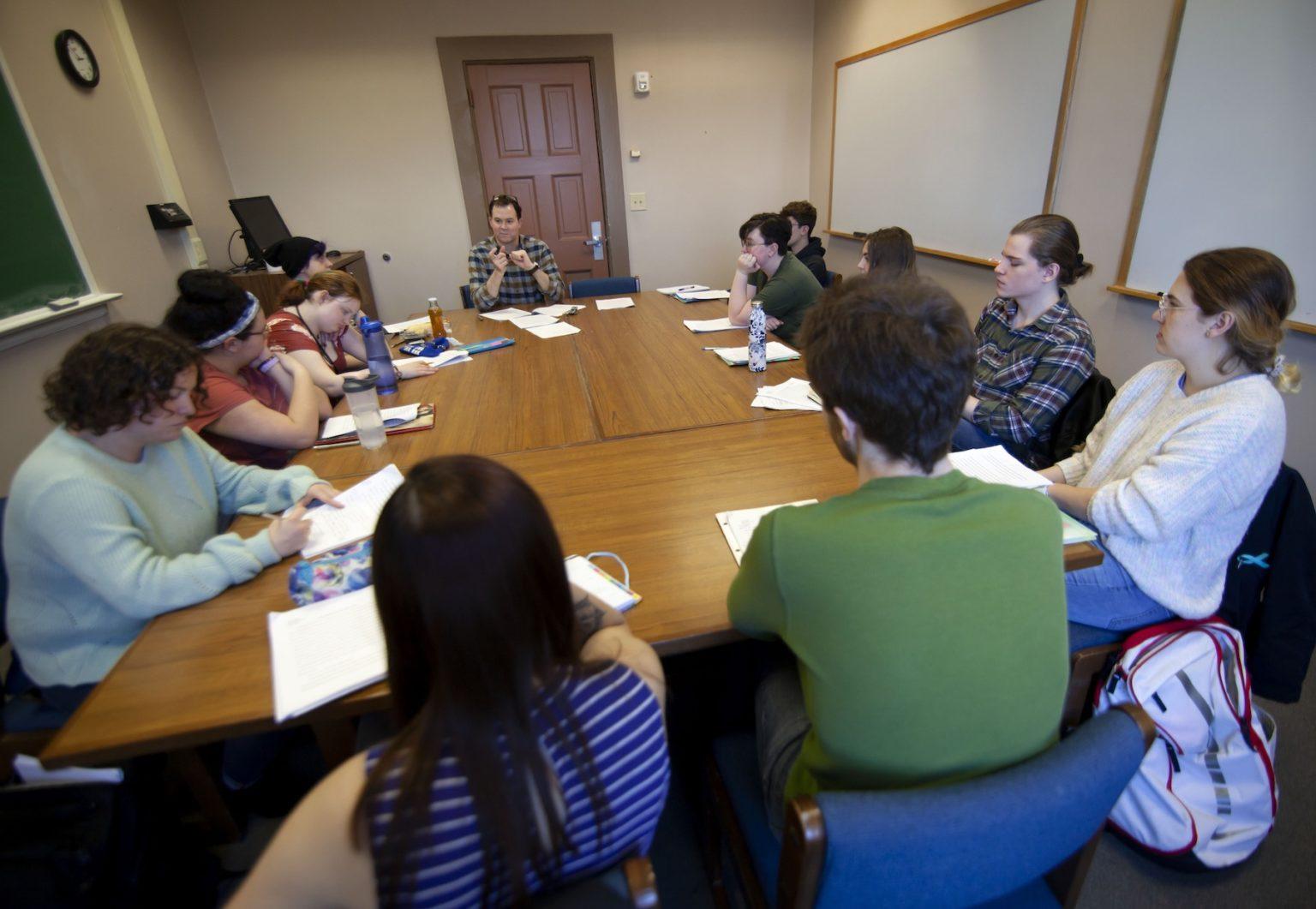Students looking to major in Creative Writing can now do so at Lawrence University, marking a significant shift in how the school’s English curriculum is structured.
Beginning in the fall, students in the English program will have two curricular tracks to choose from, one leading to a major in Creative Writing and the other to a major in Literature.
“The new ‘track’ system in the English department—essentially two majors, one in literary analysis and the other in creative writing—beautifully showcases the range of talent within our faculty while giving students the opportunity to explore their passions as readers, critics, and writers to the fullest range of their ability,” said Provost and Dean of Faculty Catherine Gunther Kodat.
See details on the new Creative Writing: English major here.
David McGlynn, professor of English and chair of the English department, said the newly launched Creative Writing: English major will allow students who want to focus on writing to do so with more depth and purpose. It will build on—not replace—an English major with deep roots, one that has produced a wide range of novelists, journalists, technical writers, poets, and book editors through the years.
“We’ve seen more prospective students articulating their desire to focus directly on creative writing,” McGlynn said. “More current and prospective students are seeking graduate-school and career opportunities in writing. We believe the new track system will allow students more flexibility to pursue their goals.”
Lawrence has offered a minor in creative writing for nearly a decade. Many of the writing courses — taught mostly by McGlynn and colleagues Melissa Range and Austin Segrest — are already in place. But new offerings will be added, including an introductory creative writing course designed for first-year students as well as a senior seminar in creative writing for graduating seniors.
Meanwhile, the Literature: English major also will see new classes added, including one that focuses on academic writing at the advanced level and expanded offerings in the study of historically underrepresented writers.
“Both tracks will allow students more opportunities to focus on what they want to do with the English major,” McGlynn said.

As chair of the English department, David McGlynn has led efforts to launch a Creative Writing major within the English offerings, beginning this fall.
Lawrence has had no shortage of successful writers coming out of its English department through the years. Most recently, Madhuri Vijay ’09 had her debut novel, The Far Field, longlisted for the 2020 Carnegie Medal for Excellence in Fiction.
“Creative writing students learn how to work hard and to have faith in themselves over the long haul,” McGlynn said. “Developing as a creative writer takes years and the process can’t be cut short. But when we, as professors, find students who love to write, we do our best to encourage them to go big, to go for it.”
In addition to those who have become novelists or published authors, English graduates from Lawrence have found success in dozens of other fields where the ability to write and think analytically is so important.
“The skills learned in English classes, such as writing, communication, analysis, critical thinking, have applications far beyond studying literature,” McGlynn said. “Along with the writing comes the ability to look into the perspectives of other people, to consider things through someone else’s point of view. That turns out to be pretty good training for fields like social work, counseling, psychology; we’ve had students go on to study medicine, law, business, and library science. The possibilities really are endless.
“And when they get those opportunities, the writing, the thinking, the ability to sympathize and analyze simultaneously comes in really, really handy.”
English is often a popular option for a double major. The new Creative Writing major adds new possibilities across campus that has Kodat excited.
“In particular, it will be exciting to see what kinds of collaborative student projects the new track in Creative Writing unleashes at Lawrence, with its depth of course offerings in music and visual art,” Kodat said. “Expect to be dazzled and astonished.”




